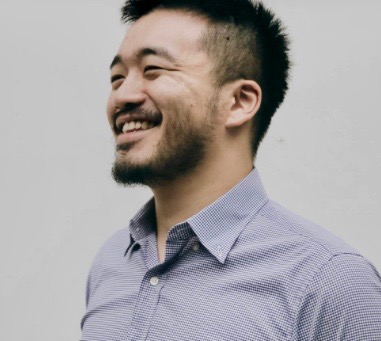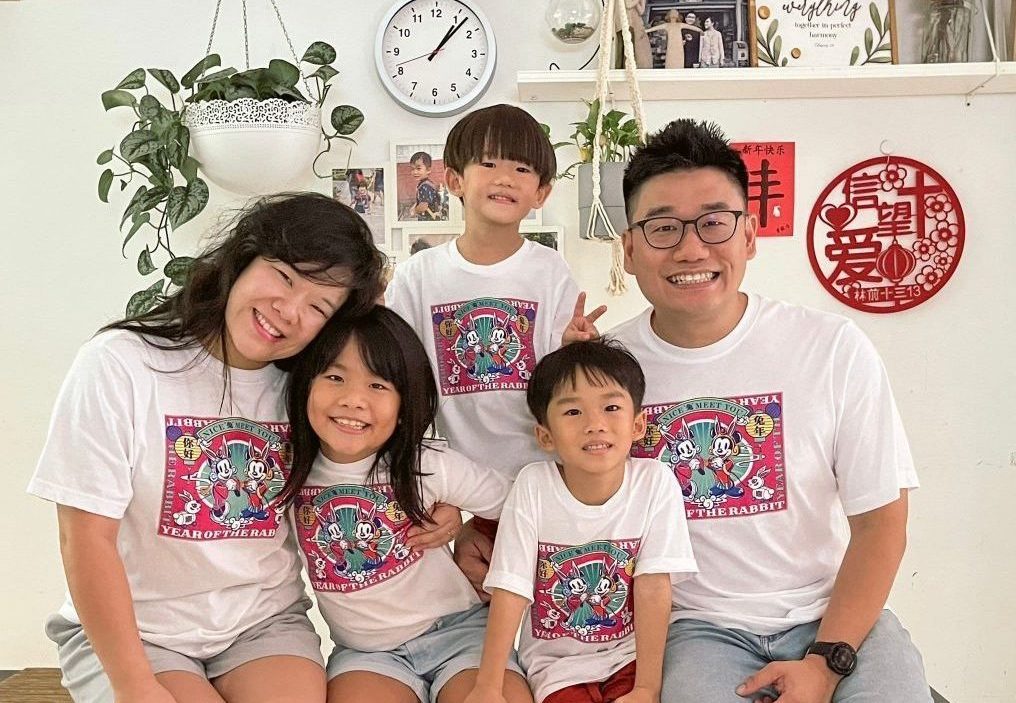“I learn more from my failures and inadequacies”: Speaker Tan Chuan-Jin on what it means to be a leader
Gabriel Ong // June 27, 2020, 6:08 pm
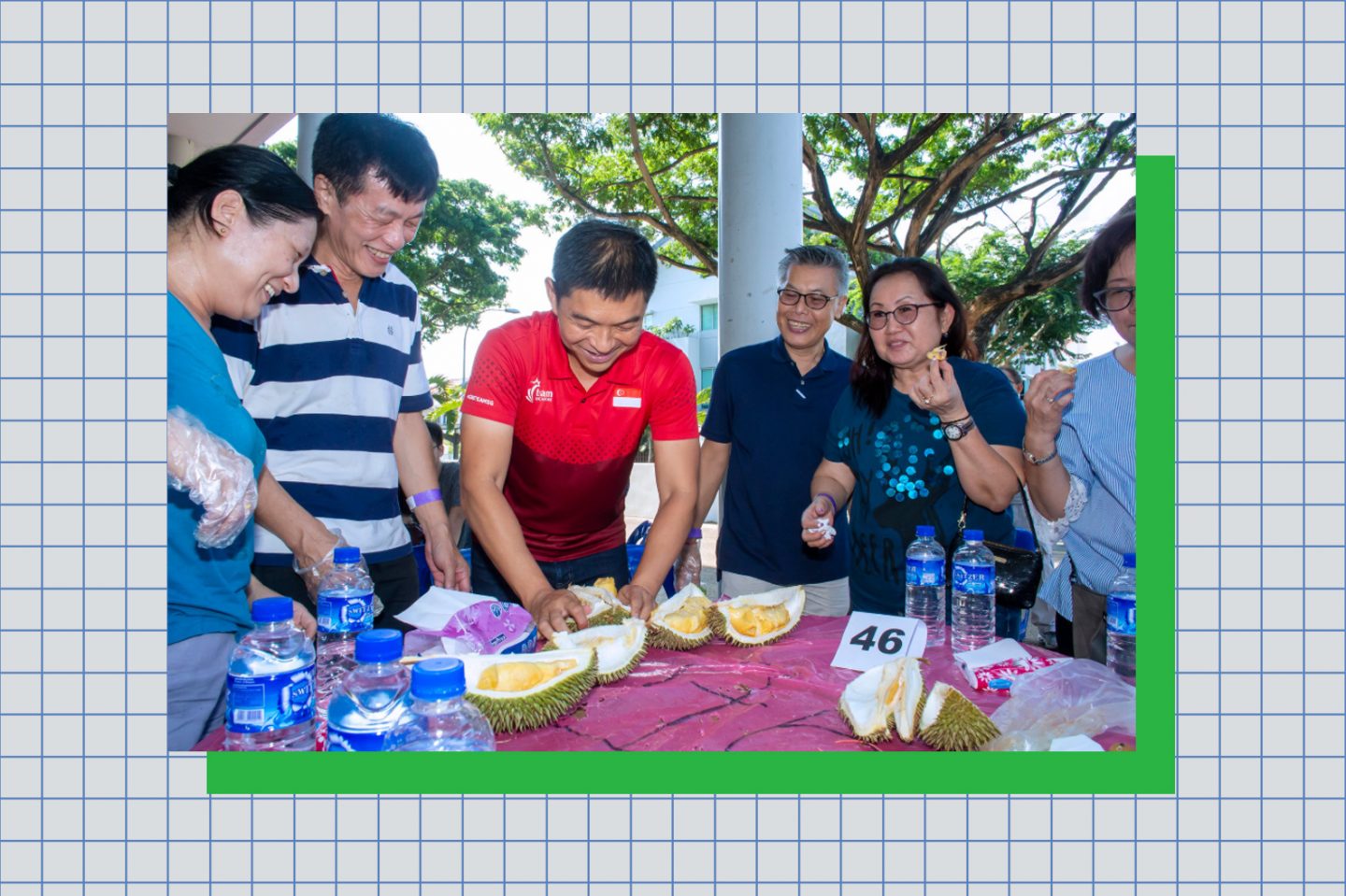
In a live Instagram broadcast on May 30 via impossible413, Mr Tan Chuan-Jin recounted candidly how, on his first day as a Minister, he told his staff that there were things he didn't know and would need time to learn. All photos from Mr Tan Chuan-Jin's Facebook page. Artwork by Nicole Chan.
NOTE FROM THE EDITOR (17 JULY, 2023):
Dear reader,
We apologise that the articles with Mr Tan Chuan-Jin were temporarily offline while we took in the news developments and contemplated how best to approach them.
These articles were published before any allegations came to light, and so we trust these articles will now be read in the appropriate context.
As faith-based websites, we do our best to highlight examples of people living out their faith. While these are often everyday, everyman examples, in some instances, the newsmakers are high-profile figures, including politicians.
But while we all aspire to be blameless (Daniel 6:3-5, 1 Peter 2:12), the sad reality is that we are all aware of the fallenness of all man and the reality that no one is exempt from temptation and sin.
We believe that while missteps may be made, lessons can be learnt. We believe that where repentance is shown, grace and forgiveness can follow. We strongly believe that our heart should never be to tear people down, always to build people up (Ephesians 4:29).
We believe that those of us looking on as believers should adopt a restorative posture. Do join us in praying for the people involved, and for this nation. May love guide our hearts and righteousness be our hallmark.
Grace be with you,
Edric Sng
Mr Tan Chuan-Jin has had decades of experience being in a leadership position.
Speaking on impossible413’s live Instagram broadcast on May 30, the 51-year-old articulated his definition of leadership and shared openly about the struggles leaders face as they strive to make a difference in the world.
Trust, values and keeping it real
“I often ask leaders for that one keyword or idea they associate with leadership. Why would you follow someone? For me, the most elemental aspect of leadership is trust. People follow you because they trust you,” shared Mr Tan.
One must then ask: How do you engender trust?
“(When) everyone lifts everyone else up … This is when the collective really becomes a greater sum than its parts.”
“This is where values come in and why they are so important. People trust you because of who you are as a person,” he explained.
“It is not just what you say, but also what you don’t say and how you say it, as well as what you do, what you don’t do and how you do things.”
While the real you is sometimes seen by your bosses and peers, it is always seen and experienced by your subordinates, added Mr Tan.
Being genuine and real is therefore important. But to do that, you need to be comfortable with who you are and keep your ego in check.
Mr Tan, who was Speaker of Parliament until it was recently dissolved ahead of the 2020 General Election, recounted candidly how, on his first day as a Minister, he told his staff that there were things he didn’t know and would need time to learn.
“It’s the same at every place and every job. We all feel that we need to put up a front, in order not to appear inadequate; so we create this distance from people, so that they don’t see those weaknesses,” he observed.
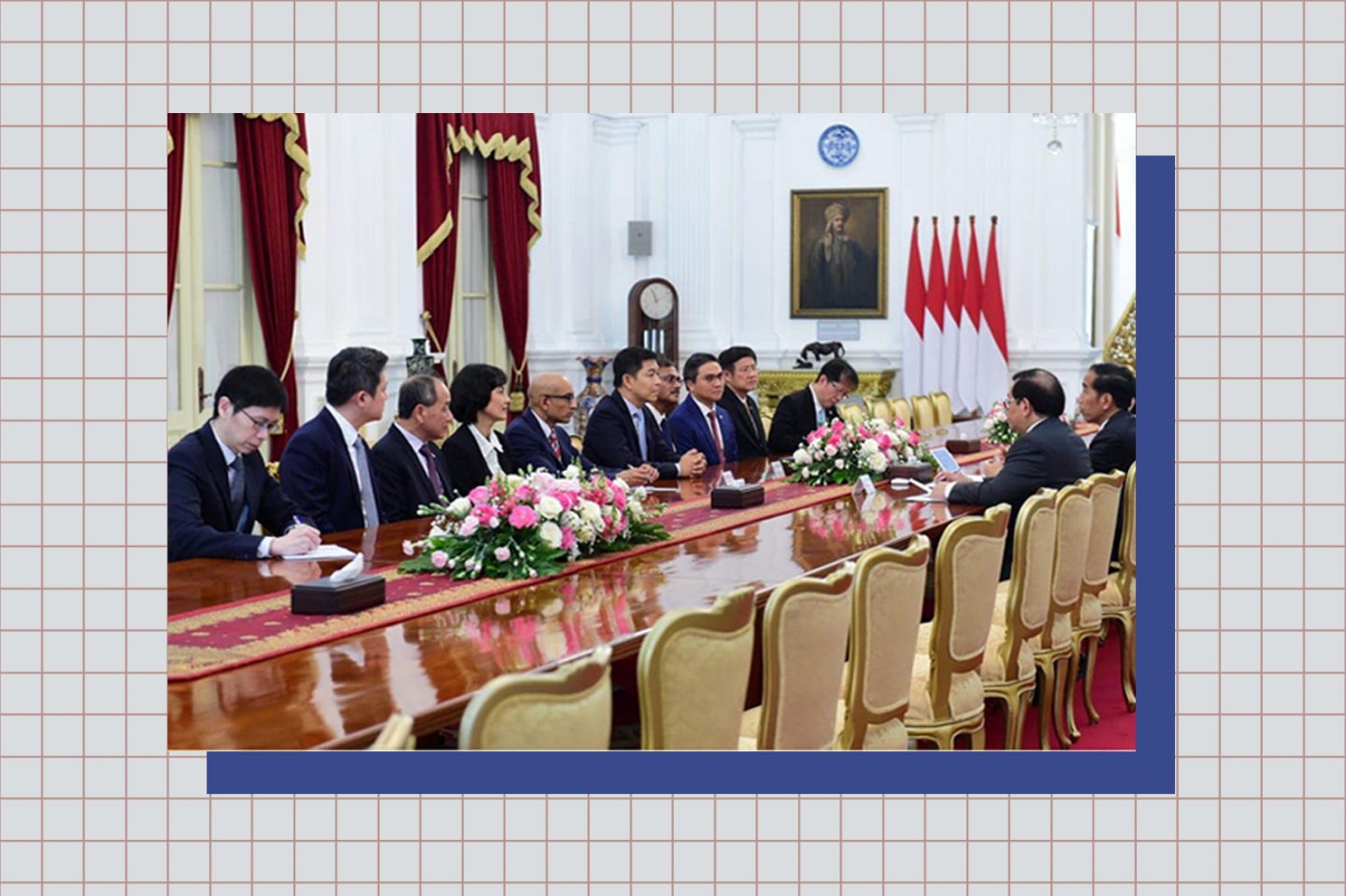
“We need to learn to be comfortable with who we are and work with the team so that everyone lifts everyone else up and covers each other’s weaknesses. This is when the collective really becomes a greater sum than its parts,” said Mr Tan.
“We mask our inadequacies. We always find it difficult to share our weaknesses because it seems to undermine our ability to lead, so we pretend.
“People are seeking authenticity. This has a huge bearing on engendering trust.”
“Or we use our authority to thumb people down so that people are a bit wary and stay further away.
“Some people believe that it is better to be feared than to be loved because it’s far easier to do that. But doing this creates a barrier. We need to learn to be comfortable with who we are and work with the team so that everyone lifts everyone else up and covers each other’s weaknesses. This is when the collective really becomes a greater sum than its parts.”
Mr Tan urged leaders to aim for authenticity, to be the same person whether you’re facing cameras or with those under your care.
“I realise it’s far easier to be yourself, otherwise you keep putting up a front and start losing track of who you are. People are seeking authenticity. This has a huge bearing on engendering trust,” he said.
We’re only human
Responding to another question by co-host Ang Hern Shung from Trinity Methodist Church on which Bible character had inspired him the most in his journey, Mr Tan said that there was no one specific leader.
“It’s whether we open up ourselves to allow God to work through us as we follow God faithfully.”
“There are many things that you learn from the good and bad leaders, as well as the good and bad incidents,” he explained.
While Jesus Christ is an example of the perfect leader, naturally we would all fall short of that “very tall order”.
Speaking freely, Mr Tan himself acknowledged this fact right at the beginning of the conversation: “The truth is, we all have our shortcomings. We’re all inadequate, and I do feel exceedingly inadequate.”
But yet we should not be discouraged as we are all human, he said. “In fact, I learn more from my failures and inadequacies.”
Reminding everyone that it is God’s sovereignty that allows things to unfold in our lives, Mr Tan added: “It’s whether we open up ourselves to allow God to work through us as we follow God faithfully.”
It’s how you treat others
Fellow co-host Amos Tan, one of the committee members of IMPOSSIBLE 413, then recalled having served under Mr Tan while they were both in the Army, sharing how he was struck by the way the former Brigadier-General led from the front in Exercise Wallaby by getting into shell scrapes to check in on ordinary soldiers and spend time with them in the harsh conditions.
Mr Tan began his response by asking: “What’s our definition of leadership? Do we know our leadership beliefs and philosophy? What is it that guides us in what we do?”
Our leadership philosophy refers to our beliefs about human nature and what it means to be a leader, he explained, adding that the challenge is then living that out in everything that we do, in the best possible way we can.
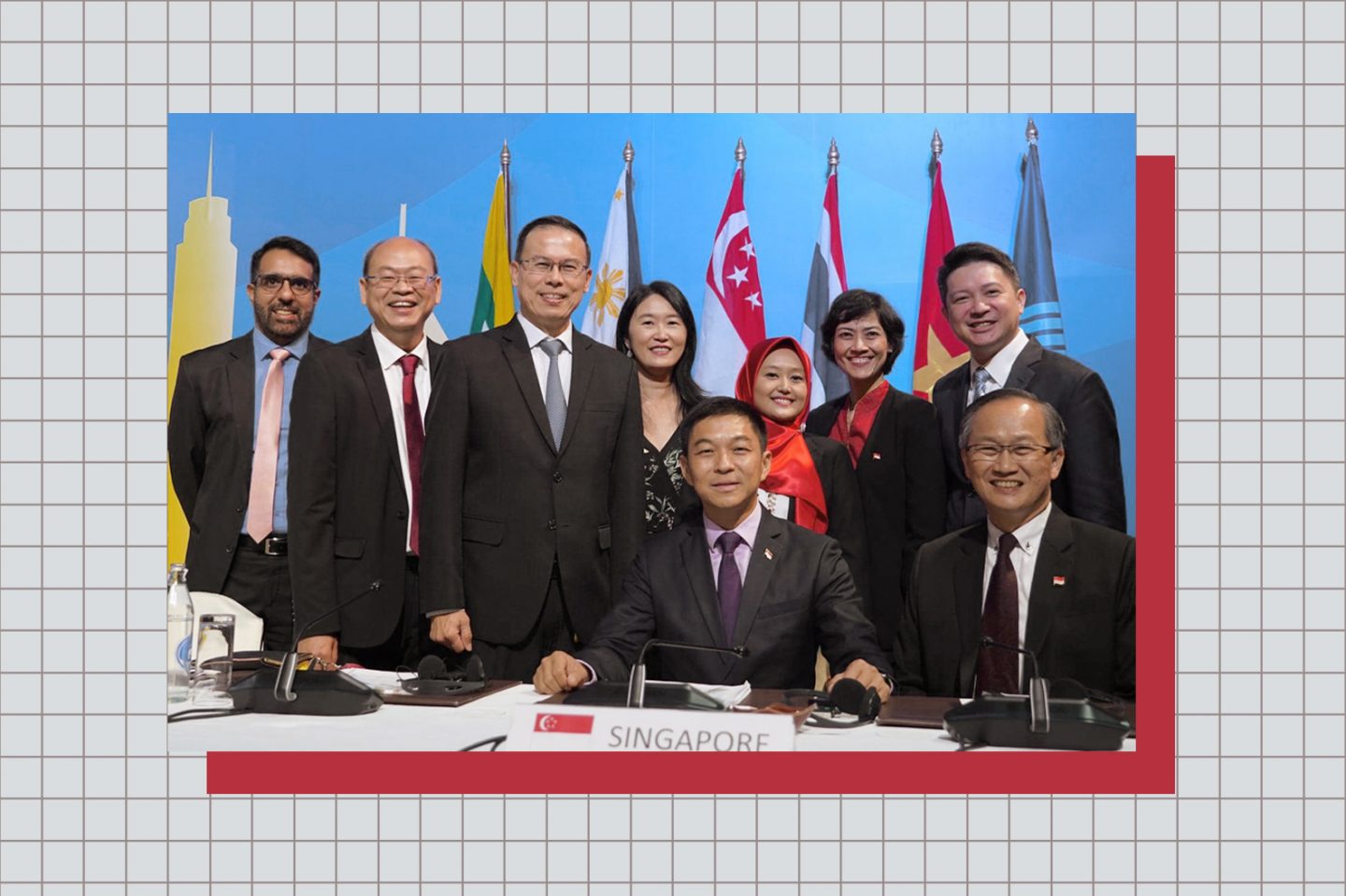
“Great leadership is about how you inspire your people to go the extra mile. Are they just doing the bare requirement? Or are they striving to go beyond themselves?” said Mr Tan.
He shared: “Very few leaders are able to describe ‘This is who I am. This is what I believe. This is what guides me on a day-to-day basis in every single thing that I do, and the way I run meetings, meet people, respond to emails, etc.’ This is scary isn’t it?
“If leaders have such a significant impact on people and organisational climate, it is imperative that leaders must be deliberate in the way they lead.”
“When hearts are touched, and lives are connected … It is no longer just about ‘me’ but ‘we’.”
Clarity, vision and capability are very important factors and necessary, he affirmed. But great leadership is about how you inspire your people to go the extra mile. Are they just doing the bare requirement? Or are they striving to go beyond themselves?
While Mr Tan previously talked about the need for the nation to not only be concerned about “hard capabilities” but also its “heart and soul“, he goes back to this concept when discussing leadership.
He said: “It also comes back to biblical values and principles. It’s about love. If you genuinely care for somebody and look out for them, you would also make sure you train and equip them. But when hearts are touched, and lives are connected, it’s a different dimension altogether. It is no longer just about ‘me’ but ‘we’, and that is when one is prepared to go that extra mile for someone else, the team, and on the battlefield, to even lay down one’s lives for others.”
After all, people follow leaders because they trust them – and it is this same underlying idea of being “others-centric” that builds trust. For instance, how you engage someone, respect them and make them feel valued can leave a deep impression on people.
Mr Tan continued by saying that if one were to think about the impact of good leaders on them, it may not actually be the big things that are remembered. Sometimes, it’s the little gestures and remarks that matter.
How you engage someone, respect them and make them feel valued can leave a deep impression on people.
“It’s the 5 cent, 10 cent things,” he revealed. “A lot of us here just do what we feel like every day. But this is scary because our impact is so tremendous.”
Urging leaders to be authentic and to walk the talk, he issued a challenge: “Ask yourself: What are you doing?
“Because if your job is to inspire, then what is the impact that you have? You need to be very clear. Are you engaging or disengaging?”
As he closed his answer to Amos’ question, Tan took a more macro look at how the impact of leaders extends far beyond just their organisation or circle of influence.
“If leaders are also able to realise the higher calling they have and the purpose they serve in making a difference to society, they can inspire their people to be others-centric as well, and that is another way through which they can begin to influence and build a better Singapore.”
We are an independent, non-profit organisation that relies on the generosity of our readers, such as yourself, to continue serving the kingdom. Every dollar donated goes directly back into our editorial coverage.
Would you consider partnering with us in our kingdom work by supporting us financially, either as a one-off donation, or a recurring pledge?
Support Salt&Light